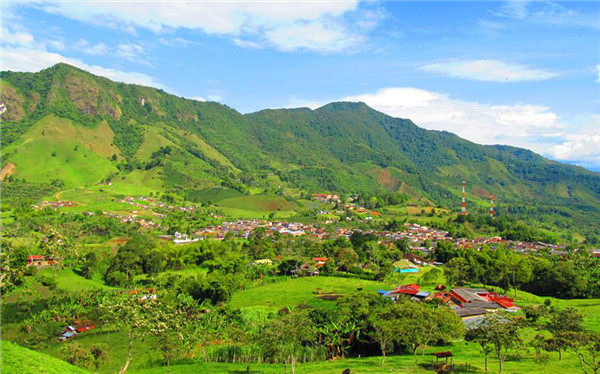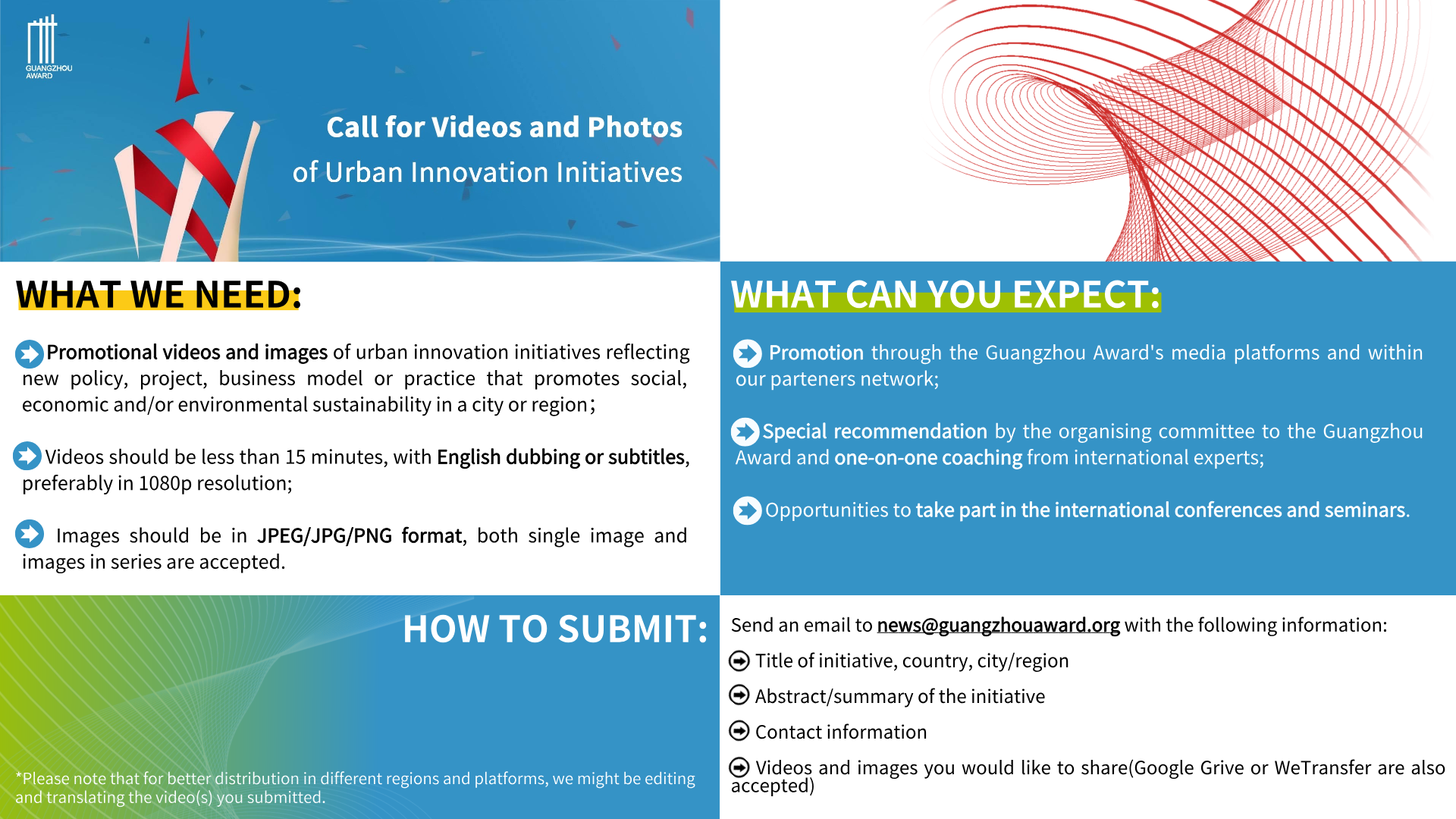Antioquia, Colombia
Educational Parks for Youth

Comments from the Technical Committee:
Antioquia has set up an education system of 80 innovative educational parks, which are designed to supplement traditional education with programs to enhance young peoples' knowledge of science and technology, innovation ability as well as their art and culture skills. Each of the parks is being designed by architects selected via design competitions to give each park a unique and local identity. The parks are designed to attract local talents, and promote the concepts of peace and civic values.
Background Information
The program began as a strategy within the development plan of “Antioquia, the Most Educated” and has become the main driver to transform education in Antioquia and create opportunities for regional development. Through widespread mobilization, local authorities and communities competed to build educational parks. A public policy that will support the network of 80 educational parks is currently being developed. Municipal authorities are signing local council agreements and citizens’ pacts to guarantee sustainability of the program.
Goals of the Initiative
The main objectives of the parks are to improve the quality of education, enrich and complement local educational and cultural programs, and promote social and economic development on a local and regional scale. This is done to attract and nurture local talent and create and atmosphere of peaceful and harmonious civic values.
The seven lines of the educational program, developed with a number of organizations and universities, are:
•teacher training to improve pedagogy and knowledge in math, science and literacy,
•complementing primary and secondary schooling in basic areas and improving technical and vocational training,
•opportunities to access higher education,
•access to ICTs as educational tools and a means to connect to the world,
•encouraging a culture for entrepreneurship and local enterprises or ideas,
•environment, culture, art and sports for education and citizenship building,
•learning foreign languages in fun and applicable ways.
Innovation for the Initiative
More than just buildings, the Educational Parks are conceived as public places for citizens of the 21st century, a model of developing capacities and creating opportunities through education.
The formal and alternative educational programs that will be developed within these spaces will promote science, technology, research, innovation, connectivity, and entrepreneurship, as well as develop cultural and artistic practices as a means for enhancing citizenship, diversity and identity.
Each park, 500-600 square meters in size, has been designed by national architects of all ages who competed to be part of the process and give each municipality a unique identity.
The program is based on experience of Medellin (when Sergio Fajardo Valderrama was mayor), where the urban infrastructures were built in marginal areas of the city, promoting a number of social reforms. However, the program contains new elements . The wide social mobilization that has been an essence of the process. Now, several cities in Colombia and a few in Latin America are interested in learning about the experience.
This operational model is also innovative. The 80 Parks will function as a network, which are operated by the cooperation among public, private and community. Despite the social, economic, ethnic and geographical differences in each municipality, the network creates unified standards in educational programs, operation and financing mechanisms, and decision making processes.
However, each park can also have their own particular context. Some parks will be a place to hold social activities, while others will focus on economic development (such as coffee sales, ecotourism, etc.).
Some political groups resisted the program, claiming that it was better to invest money in the traditional education system. This has been overcome by the showing of local government and community support for the project and that investment in the formal schooling system has continued. Parks do not replace this. Concern for sustainability has been expressed and managed by building a public-private institutional framework, guaranteeing public funds and co-financing. In addition, we also established long term alliances and insist on social mobilization.
Outcomes and Assessments
Given the multifaceted nature of the program, measurement must be made on different aspects and stages. Although most of the parks are still under construction and in design phases, the program has already show results in terms of promoting community participation, raising people’s interests for educational issues, and enhancing local institution’s educational capacities.
There are 80 local Educational Parks committees where around 2,000 representatives from different communities meet monthly to discuss how to build their parks. In each municipality, about 40 social mobilization activities have taken place, focusing on promoting the “Parks Culture”, give citizens a better understanding of city’s value.
The first Educational Park that began operation is located in Vigia del Fuerte, a less-developed area of Antioquia, with conflicts and weak institutional capacity.
Basic indicators are reported weekly, such as visitor flow rate at the park, its daily programs, influence of these programs for teachers, students and common people as well as qualitative indicators regarding people’s opinions and satisfaction.
These measurements are currently being carried out by the local and central parks teams to adjust strategies in a timely manner, however, this will become more robust when the network is in place. The local park committee also carries out their monthly evaluations.
In alliance with public and private universities, the program is to set a evaluation system that will measure results on a short (one year), medium (three year) and long-term (five to 10 year) basis.
Given the multiple elements included in this innovative program, several aspects will be measured: the institutional framework, the governance, operational and financial model, the educational outcomes of the program that take place in the park, the levels of social mobilization, etc.


 test
test Urban Innovation in China | Hainan: Transforming Mangroves into “Golden Groves”
Urban Innovation in China | Hainan: Transforming Mangroves into “Golden Groves” In Focus | Empowering the “She” in the Family
In Focus | Empowering the “She” in the Family In Focus | The World Earth Day: Planet vs. Plastics
In Focus | The World Earth Day: Planet vs. Plastics




















 Tel: +86 20 3780 4434
Tel: +86 20 3780 4434 Email: info@guangzhouaward.org
Email: info@guangzhouaward.org Address: Rm 1609, FuLiXinTianDi, No.307 Guangzhou Dadao Zhong, Yuexiu District, Guangzhou, Guangdong, 501600, PRC
Address: Rm 1609, FuLiXinTianDi, No.307 Guangzhou Dadao Zhong, Yuexiu District, Guangzhou, Guangdong, 501600, PRC




